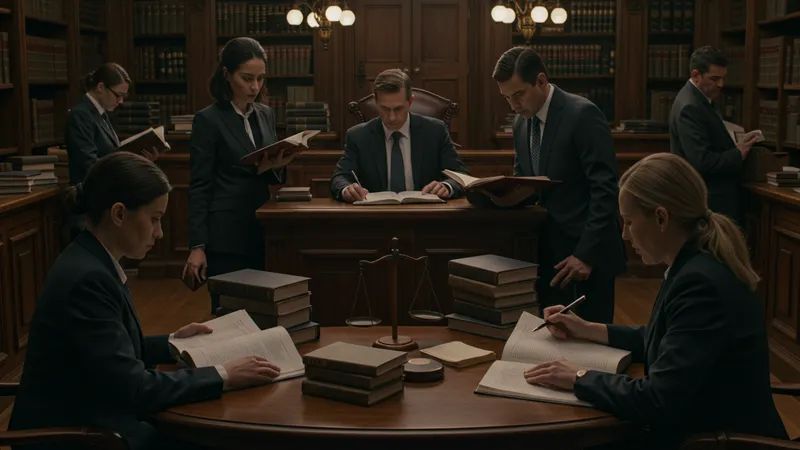If you think defense attorneys are just for guilty people, think again. Shocking new data reveals that 65% of Americans don’t fully understand their rights in a legal emergency. Would you qualify as the 35% that do?
In our constantly evolving legal landscape, staying informed isn't just wise—it's crucial. From new legislation to landmark court cases, the stakes are higher than ever for those facing the criminal justice system. Could this knowledge change the outcome of your life?
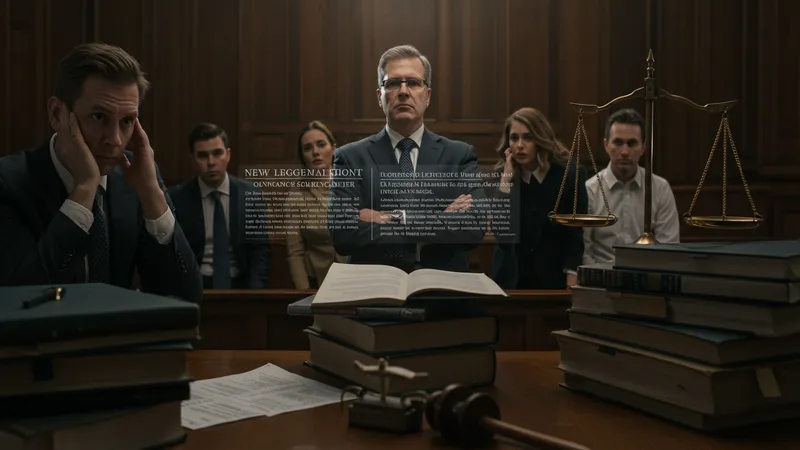
Imagine sitting across a courtroom, a jury hanging on every word, and the verdict pending over your head—then realizing your public defender has never handled a case like yours before. Shocking, isn't it? Most defendants assume all lawyers provide the same defense quality, yet studies show the top 10% of attorneys produce disproportionately superior results. But that’s not even the wildest part…
Consider this: hiring the wrong criminal defense attorney could mean the difference between freedom and a decade behind bars. While advertisements focus on promises and secure strategies, a vast network of complex variables dictates the case outcomes most never see coming until it’s too late. But what happens next shocked even the experts…
The courtroom is more than just a platform for justice—it's a battlefield where every detail can swing the scales dramatically. Many assume a solid case is based purely on evidence, but seasoned attorneys understand that strategic maneuvers like motion filings often play more significant roles. Shockingly, these tactics are sometimes brushed aside as unimportant by less experienced defenders, a mistake that can cost a client's freedom. But there’s one more twist...
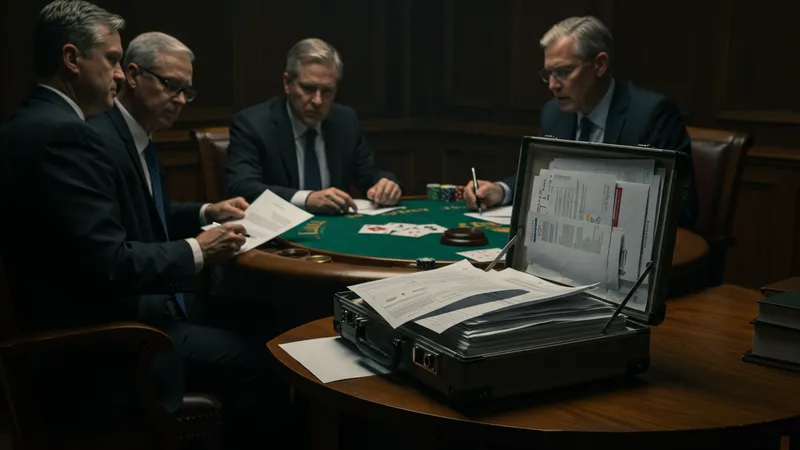
Those who dive into the fine print will discover how critical pre-trial efforts are. Factors like jury selection—a key determinant in trial outcomes—require nuanced expertise that many overlook. Surprisingly, jurors' subconscious biases, influenced by seemingly trivial details, can sway their verdict just as much as hard facts. It’s like a poker game where the best bluff wins, but only if you know how to play the hand. And yet, the revelations don’t stop there...
Equipped with insider knowledge, some attorneys leverage familiarity with legal precedents to strategically navigate the justice system’s murky waters. This is especially true for those who’ve cultivated relationships within court circles, opening doors to overlooked opportunities for reduced sentencing or case dismissals. But there’s a catch—a significant portion of defendants place their future in the hands of attorneys lacking these connections, unaware of what's being missed until it’s too late. What you read next might change how you see this forever.
As surprising as it seems, choosing the right legal representative means more than a flashy website or catchy slogan. Many successful attorneys pride themselves on a track record of concrete results, built not through luck but precision and proactive case-management skills. The insight to assess and plan for any potential hurdles ahead can be the key difference between success and failure. But what if I told you this is just scratching the surface of what truly defines an effective defense?
Many believe that the most expensive attorney is the best option, but financial cost doesn't always correlate with efficacy. In fact, recent research indicates that some high-priced lawyers default to cookie-cutter defense strategies that don’t account for unique case nuances. These tactics can be detrimental, causing clients to pay a premium for subpar outcomes. However, understanding your unique case dynamics can change everything…
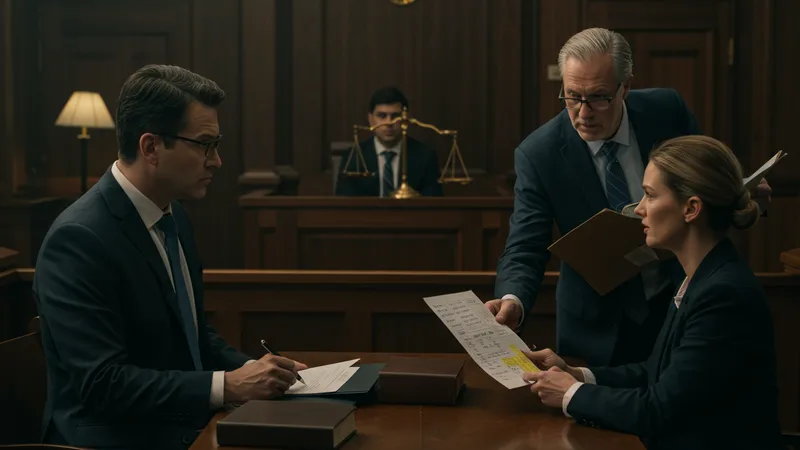
A savvy defendant knows to question potential attorneys about their case strategy from the start. Rather than relying on generalized experience, effective counsel should offer tailored insights specific to individual legal challenges. By focusing on how a lawyer plans to address the specifics of your charges, you can better ascertain whether their services will meet your needs. But there’s more to uncover!
It’s often overlooked, but a lawyer’s connections within the judicial system can play a crucial role in how a case is handled. Building rapport with judges and prosecutors can sometimes lead to more favorable plea deals or sentencing outcomes, a factor rarely advertised in glossy brochures. For the uninitiated, this can make all the difference between a favorable verdict or lengthy litigation. And there's another consideration worth examining closely...
Choosing a criminal defense attorney isn’t just about credentials or reputation; it requires understanding the personal dynamics of potential lawyers. Their interpersonal skills can significantly influence jury perception and case presentation. An attorney who knows how to communicate effectively with diverse audiences holds a potent tool in shaping outcomes. What happens in the next revelation could redefine your perspective on legal decisions entirely.
Timing is everything in the legal arena, though many defendants are blissfully unaware of its impact. From filing motions to securing expert witnesses, legal processes often depend heavily on hitting precise deadlines. Miss these and you may face heavy penalties—from lost motions to dismissed appeals—affecting the entirety of your case. But understanding this isn’t just critical; it's transformative.
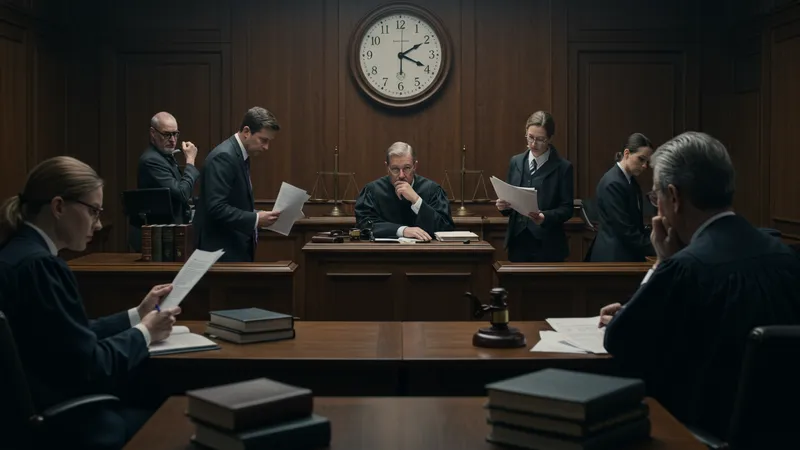
Consider the strategic use of continuances—a delay tactic that, when used skillfully, can buy crucial time for gathering additional evidence or negotiating a plea deal. However, misuse or over-reliance can lead to weary judges who favor swift resolutions, proving that every strategic decision requires meticulous assessment of risks versus rewards. But even that underlines a greater reality...
The decision-making timeline doesn’t only hinge on legal procedures, but also on the psychological readiness of defendants. Engaging an attorney sooner rather than later allows for a more comprehensive strategy. While it seems obvious, needless hesitancy or procrastination can severely limit defense preparation, sometimes with irreversible consequences. But the most surprising part is yet to come.
Effective legal timing also integrates the understanding of external factors such as legislative changes or court rulings on similar cases. A well-timed argument can leverage these events for a more persuasive case. Missing out on this opportunity is akin to forfeiting an ace up one's sleeve. This crucial insight into timing is just another layer in the complex web of legal strategy that can mean the difference between liberty and incarceration.
Law school never taught us this, yet evidence management may well be the linchpin of an entire case. Many clients don't realize it, but even the most damning pieces of evidence can be challenged if handled correctly. Meticulous document preparation, expert witness utilization, and leveraging procedural errors are just a few tools at a defender's disposal. But these methods hide more depth than you’d expect...
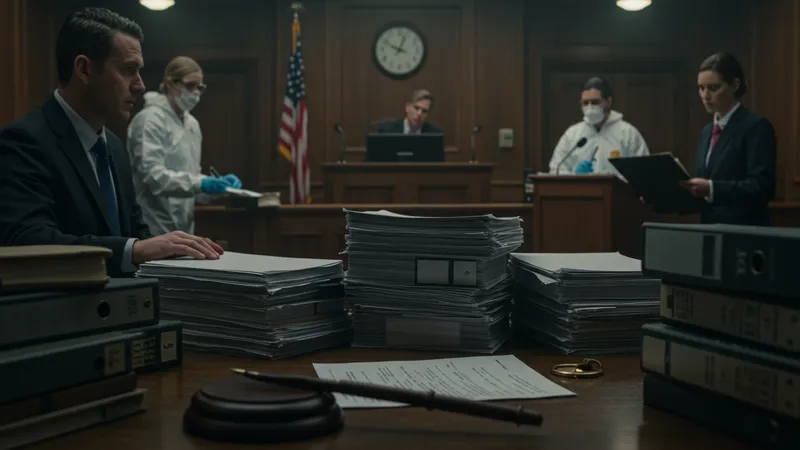
For those with deep pockets, the involvement of forensic specialists can turn the tide in a courtroom. Expert witnesses bring weight and authority to a case, capable of dismantling the opposition’s narrative piece by piece. Investing in them often leads to more reliable outcomes, yet, staggeringly, an alarming number bypass this advantage due to budget concerns. You won’t believe what's next…
Electronic evidence is now integral, from surveillance footage to digital footprints. Surprisingly, even text messages or emails presented out of context can alter a jury’s perception. Therefore, the ability to interpret and present this data effectively plays a critical role. It serves as a reminder that evidence is more than a solitary fact; it’s a narrative waiting to be crafted by a skilled attorney. The following fact will stun you.
Even seemingly minor items can become pivotal when wielded properly. A receipt or timestamp ignored during preliminary investigation could resurface as a case-winning element. Understanding the power and potential of every piece of evidence in a legal puzzle, no matter how minute, gives defendants the edge they desperately need. It's a fascinating insight into the intricacies of legal success and failure.
Did you know that 82% of jurors make their decision during opening statements? The art of persuasion relies on cognitive biases more than facts, as jurors often align new evidence with their initial impression. A stunning insight, yet vastly underappreciated by most courts despite its critical impact.
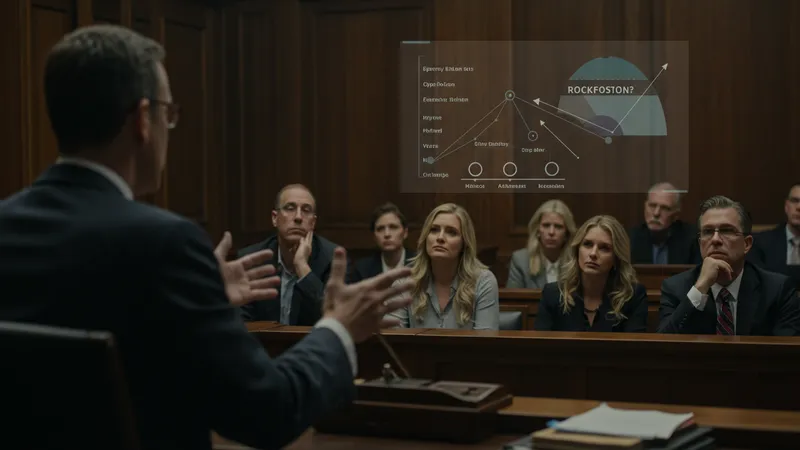
A compelling attorney doesn’t just present facts; they craft a compelling narrative that resonates emotionally with the jury. It’s this behavioral alchemy that turns uncertainty into certainty, doubt into belief. Such insight reveals a tactical advantage waiting to be seized—but that's only half the story...
In recognizing the biases each jury brings to the table, seasoned lawyers employ linguistic and rhetorical techniques to influence how evidence is perceived. By appealing to the jury’s empathy or commonsense logic, they cultivate a fertile ground for their client’s innocence, demonstrating that skillful communication is indispensable here. But here’s an unexpected detail that could alter your perception entirely.
Drawing jurors into a story rather than a legal argument allows them to internalize a client’s perspective naturally. This storytelling technique often shifts the jury’s focus from examining facts to understanding context, a subtle yet powerful approach in witnessing trials. What you read next might change your impressions forever.
One of the greatest myths in society is that hiring a criminal defense attorney signals guilt. However, even the innocent need robust legal representation to prevent wrongful conviction. Astonishingly, a large number of cases reveal defendants were proven innocent only because of technical legal prowess—begging the question: do you know your rights?
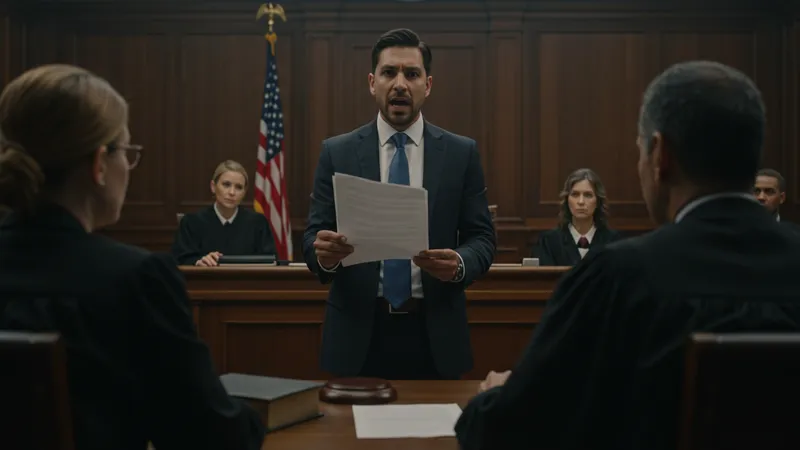
This understanding uncovers how arrest preprocessing influences case outcomes. From police interviews where Miranda Rights are miscommunicated to searches without warrants, procedural missteps can undermine a case before it begins. Vigilant defense work addresses these infractions, transforming lost battles into unassailable victories. But there's more to unravel.
Something astonishing: 20% of overturned convictions involved errors easily rectifiable had the defense intervened earlier. These errors include mishandling evidence and unreliable witness testimonies. The recognition of such discrepancies by an alert attorney places the defendant on more solid ground against systemic flaws. Prepared to see more unbelievable stats?
The newfound appreciation for diligent case reviews extends into post-conviction relief where many alleged breakthroughs occur. An attorney’s ability to reopen closed cases with newfound evidence or procedural error appeals adds a hopeful dimension to legal practice. Prepare for insights transforming your understanding of justice any moment now.
An overlooked aspect of legal success is the relationship between defendant and attorney. Many overlook the necessity of mutual trust, which acts as the lifeblood in preparation and strategic discussions. It’s a delicate yet profound dependency, where both parties delve into a profound assessment of risk and consequence. And yet, this isn’t all there is to know.
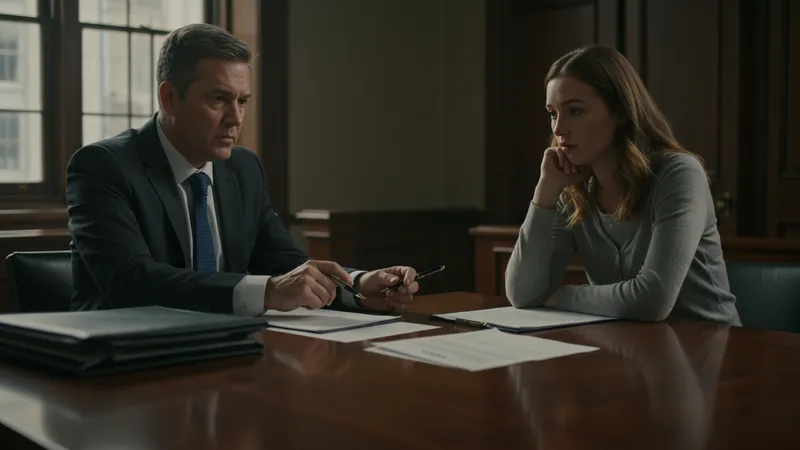
A lawyer’s openness and willingness to disclose and discuss all possible outcomes uncover preparedness essential for informed decision-making. This collaboration fosters realistic expectations and confidence in legal proceedings while also paving the way for more inventive tactics. But there's an even deeper layer worth exploring here...
Effective communication propels forward not merely through words spoken but through the establishment of rapport and understanding. It's revealed through connecting beyond professional boundaries, encouraging clients to participate authentically in their defense. Trusting this dynamic often unveils previously missed leads and clearer paths to achieving favorable outcomes. There’s still more to examine, though.
This mutuality reflects in decision-making. Whether negotiating plea deals or deciding to go to trial, an aligned perspective ensures decisions are made thoughtfully and strategically. The defendant's story, when voiced through collective consciousness, brings life into their defense, bridging gaps and strengthening positions remarkably. The next chapter promises further revelations.
Plea bargains, widely considered a quick escape route, are more than meets the eye. With over 90% of convictions resulting from negotiations rather than trials, it shines a spotlight on a sharp truth: not every deal benefits the defendant. Nuances that define them get ironed out in typical plea deals, holding shocking implications for unsuspecting clients.
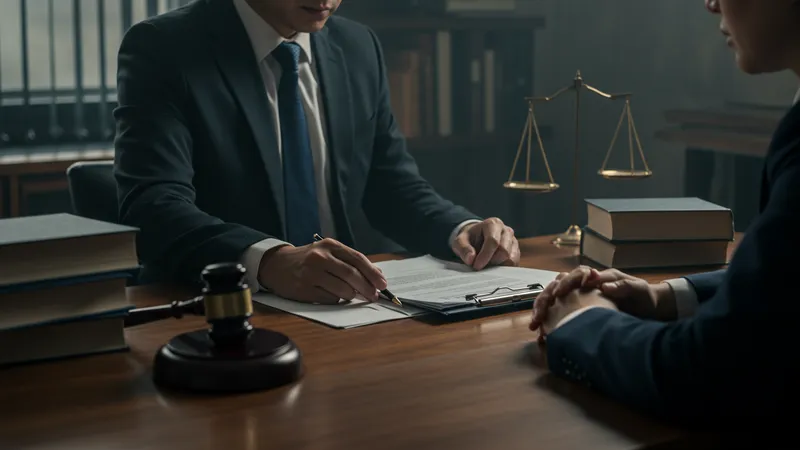
Enter the skilled attorney—the true architect of the negotiation table, wielding cautious yet tactical optimism in secure deals. This ensures client rights remain unblemished through fine print comprehension, offering protection against undue obligations or unforeseen consequences. But even deeper-seated complexities arise.
Discovery processes, wherein lawyers secure overwhelming evidence or weakened prosecution, often cite essential negotiation leverage. Attaining solid footing from these phases can sway or undermine plea negotiations conclusively when timed perfectly. However, there's another dimension hidden away in plain sight.
It turns out finalizing a plea rests heavily on understanding collateral consequences—those dreaded aspects affecting a client’s post-conviction future, often overshadowing temporary comfort or closure. Insightful legal practitioners fathom these layers to offer clients lifetime relief over short-term fixes. What comes after unveils even more astonishing insights.
In today’s hyper-connected world, public opinion can sway verdicts long before a judge's gavel hits the block. Whether it’s a high-profile case or one flying under the radar, emotional narratives and societal biases often echo within courtroom walls. Realizing this undoubtedly shifts perceptions on defense strategies.
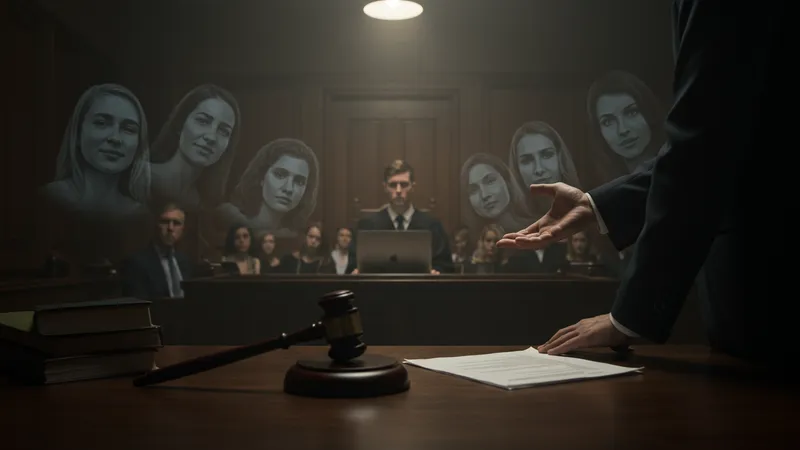
Top-tier attorneys harness public sentiment to underline inherent truths, dissolving sensationalism through factual clarity. This art of representing without pandering provides a balanced perspective that balances severe societal reactions and courtroom ethics. Yet, it’s only half of the story unfolding here.
Controversially, some defense campaigns capitalize on media representation to influence public discourse. They transform public figures into empathy’s representatives, harnessing emotion rather than mere data to enhance favorable outcomes. These observations unveil a stark facet of justice and societal interactions. But the narrative deepens further...
Understanding media portrayal’s sway motivates lawyers to secure unbiased narratives, paving the way for fairer and more rational considerations. This overlooked dimension of defense contributes to how the justice system integrates contemporary paradigms, underpinning human stories rather than faceless accusations. More enlightenment promises to emerge shortly.
In the legal world, networking is the unsung hero behind many successful defenses. It's not just about who you know in the court system, but how those connections enhance strategy and decision-making. Networking can redefine case dynamics in unparalleled ways, leading to shockingly positive outcomes.
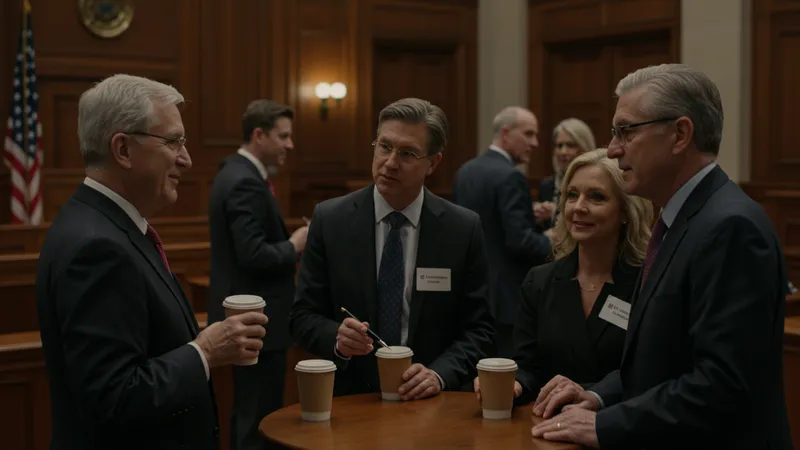
Access to seasoned advisors or retired judges can impart invaluable insights into navigating complex legal procedures. It’s these mentors and collaborators who gift strategic foresight beyond the black letter of the law, presenting unforeseen yet fruitful paths for current proceedings. But what’s even more fascinating?
Cultivating relationships with other defense attorneys provides an atmosphere of cooperative learning and resource exchange, amplifying one's technical prowess. This professional camaraderie creates a robust support system, allowing lawyers to exchange strategies for mutual benefit. Unbelievably, the impact expands beyond this covey.
Network wealth extends to community advocacy groups and victim support organizations, offering a treasury of resources and perspectives vital to any case. Advocates readily provide assistance, contributing fact-based narratives that undermine erroneous presumptions sewn into public consciousness. These networking advantages will unravel more layers shortly.
Technology's infiltration into legal practice redefined not only case handling but also the very essence of criminal defense. The adoption of innovative tools like AI in creating predictive case outcomes and forensic apps grants attorneys newfound power. The technological synergy transforms analytical capabilities profoundly.
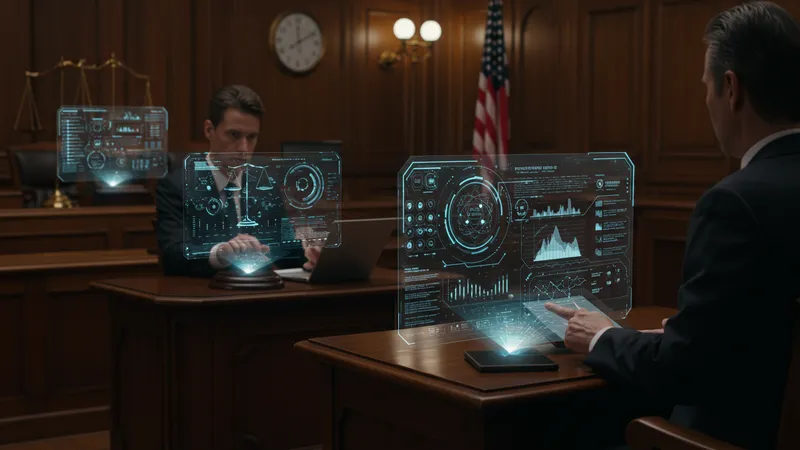
AI algorithms unearth patterns lost within the courtroom haze, pointing toward outcome probabilities many can't imagine. These advanced tools decode data and errands, innovating traditional practices with scientifically backed guarantees—a revolutionary take blending science with law. And yet, there's more to reveal.
Digital evidence platforms unite diverse data streams from social media to emails into cohesive narratives, facilitating defense debates with incontrovertible certainty. This sophisticated approach assures improved comprehension and evidential fidelity, ensuring no detail remains left asunder. But technology's impact deepens further still.
In the hands of resourceful attorneys, virtual reality recreates crime scenes with unparalleled accuracy, framing alternative perspectives and injecting empathy where needed. It enables a unique juxtaposition of evidence and empathy, illuminating insights previously obscured. This technological evolution heralds dramatic legal transformations that are still unraveling.
Due to recent global shifts, many courts increasingly transition into digital spheres, influencing the entire adjudicative juggernaut. As trials continue via virtual platforms, attorneys engage with clients, jurors, and judges through digital interfaces. Eye-opening consequences unfold when examining this digital migration.
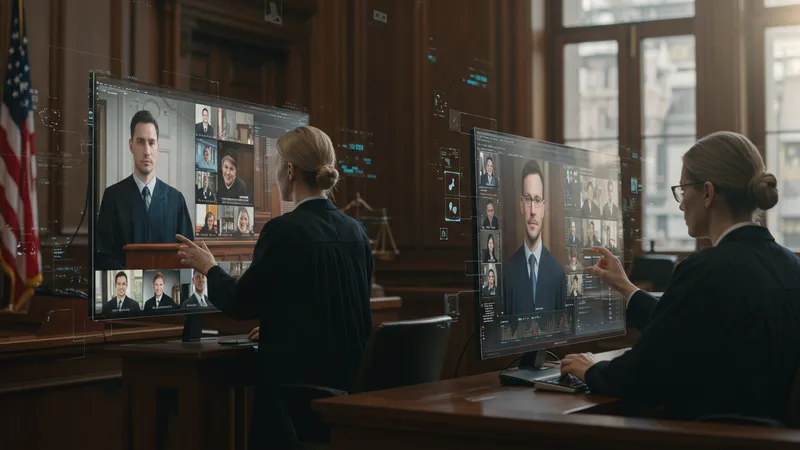
Many defense attorneys report improved efficiency and broadened access, allowing for comprehensive case exploration and client meetings across geographical barriers. These advantages translate into unparalleled preparation opportunities, creating dynamic representation unheard of in traditional setups. Predictably though, it's only a piece of the larger picture.
This virtual shift, however, carries challenges like limited non-verbal communication, muddling the subtleties indispensable in courts. It necessitates innovative solutions to bridge digital gaps professionally. Some attorneys enhance their digital savviness, evolving with novel techniques to maintain connection authenticity. Awaiting revelations could drastically change your view.
Digital advocacy, still in its nascent period, holds immense potential and pitfalls. As societal paradigms reshape, understanding its opportunities could signal a new dawn for equitable justice—ensuring all voices resonate harmoniously in a shared virtual courtroom. The subsequent insights redefine future paths imminently.
Many disregard alternative dispute resolution (ADR) as confined to civil disputes, yet recent trends suggest its emerging significance in criminal justice systems. ADR offers restorative frameworks that rehabilitate rather than punish, signaling a progressive shift from punitive to corrective systems positively.
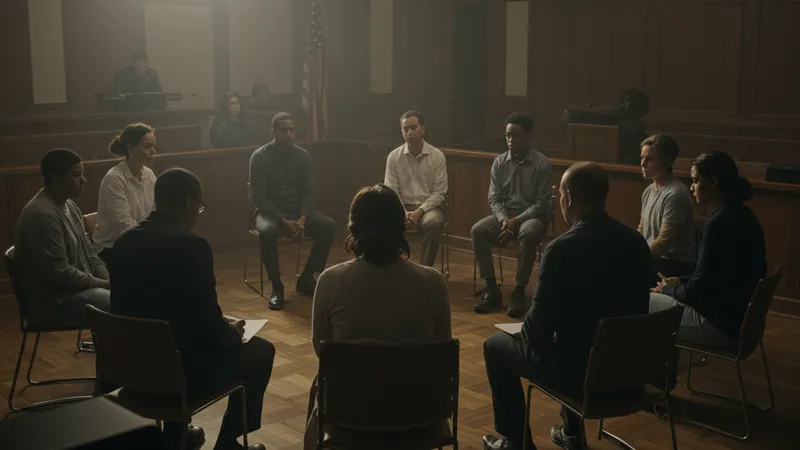
Environments focusing on mediation and peace circles allow defendants interactive sessions, discussing repercussions directly with victims. It’s an atmosphere promoting understanding and closure, aspects traditional courts often neglect. As astonishing as this appears, it indicates a paradigm shift many didn't foresee.
The flexible nature of ADR accommodates varying case dynamics, suggesting remission without adversarial trials. This adaptable path presents opportunities for reconciliation—or healing—creating avenues for individuals to re-engage socially productively. The impact of ADR cuts far deeper than acknowledged here.
Understanding burgeoning trends in ADR heightens one's legal acumen while enriching perspectives on justice. The balance between rights, accountability, and humanity presents intriguing concepts ready to influence the trajectory of legal jurisprudence dynamically. Brace yourselves for revelations promising transformation.
Criminal defense isn't just a profession—it's an art of strategic execution, insight, and often, a battle of wits. From grasping the judiciary intricacies to leveraging unforeseen connections, the journey is as complex as it is rewarding. Every twist and turn introduces new challenges yet offers invaluable goldmines of legal success. Discovering these insights could guide future defendants toward informed, life-changing decisions. It’s imperative to share this knowledge widely, delve deeper, and strive for a more just world—both inside and beyond the courtroom walls. Take action now, and perhaps, start shaping the justice story your way.
